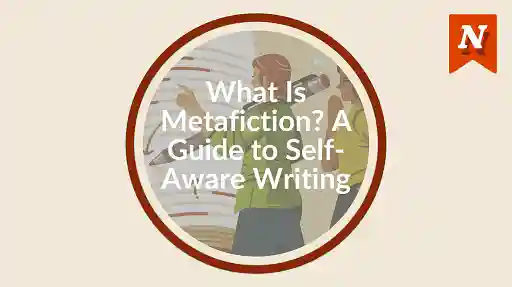Giving writing feedback is not often presented as a core step in becoming a better writer. Yet many distinguished authors were once (or still are) teachers, too. Here are 6 reasons why giving writing feedback improves your craft:
1. Giving writing feedback helps you problem-solve
Problem-solving is a big part of writing a story. For example, the question: Why do some characters come to life on the page, becoming people we know intimately, while others stay more lifeless?
Become an an editor when you read. Reading examples by writers of all skill levels helps us understand questions such as these, and their many possible answers.
Reading a scene, and trying to pinpoint what works, what doesn't, and what could work with the right tweaks is a useful, productive exercise in learning both how stories work and how to make them work.

2. Sharing feedback helps you understand your own reading habits
Reading to give feedback requires paying attention.
When we read in this critical way ('critical' not in the sense of 'tearing apart' but of 'reading with full mental engagement'), we notice things we like, things we don't, things we're indifferent to. We become aware of the many options and choices involved in telling a story.
When you read others' writing to evaluate, to form an opinion, you understand what you enjoy and value as a reader better.
And this in turn helps you understand better what you want to write. The contrast of what others are doing helps you see more clearly where your own voice and interests lie.
3. Giving writing feedback helps with getting specific
It's common for writers to ask for specific examples when you make a general suggestion, as Now Novel coaches can attest.
If you say, for example, 'this character could be developed more', the person you're critiquing may ask, 'In what way do they seem not developed?'
In giving feedback to others and trying to be helpful, you may find yourself reaching for examples you make up on the spot, analogies ('It's like when...') and other explanatory devices.
All these are exercises in being specific, which is essential when it comes to writing descriptions, in particular. Specificity is what makes one person, object or place distinguishable from another.
4. Giving feedback starts interesting conversations
Often in Now Novel's critique forum, feedback on a piece of writing between members will spill over into further discussion in groups.
This process of connecting, exchanging, talking and listening, is important to becoming a writer. At its heart, it's about being curious about the other, and being brave enough to have a voice, a viewpoint, and a perspective that you are willing to share and communicate.
The great poet Robert Frost was also a teacher, and he described teaching thus:
I don’t teach. I don’t know how. I talk and I have the boys talk.
Robert Frost, quoted by The Huffington Post here.
Giving writing feedback is similar in that it is a process of open exchange based around all involved pooling and sharing their insights, however great or small, to form greater understanding of a shared subject. In the case of writing critique groups, that subject, broadly, is 'story'.

5. Prompted feedback helps you analyze stories' building blocks
In 2018 Now Novel's critique forum moved from a more general, score-based feedback format to prompted feedback. When you critique, you're prompted to give your thoughts on characters, structure and flow, and spelling, grammar and punctuation. You can also add general thoughts, suggestions or observations in the 'General' input field.
The advantage of this way of giving feedback is that it makes you notice these elements as you read. A character's rushed death might not have stood out quite so clearly if you had not been reading for character nuances in particular. Giving structured feedback is thus a useful exercise for paying attention to all the story elements that make up your own work.
6. Being constructive helps you be more objective about your own writing
Many writers are their own worst critics. It's easy to focus in on every flaw, every line that feels cliched or awkward.
One of the ways you'll benefit from giving constructive writing feedback is you'll start to read your own work that way, too. Instead of saying 'this line is so full of cliches,' you might say 'what could make this line more original?'
Shifting from judgments to questions and answers is an important process if you do tend to be self-critical. Because questions and answers are more oriented towards building, while simple negative judgments prevent it by shutting down further questions.
Grow your skill and bring your unique perspective as a reader. Give feedback to other writers in our critique forum to develop your own craft.









